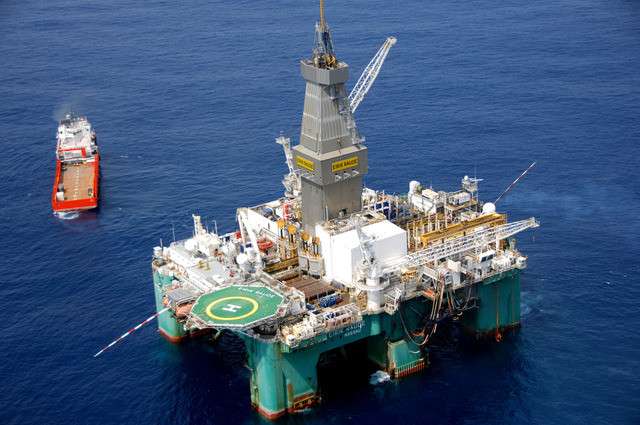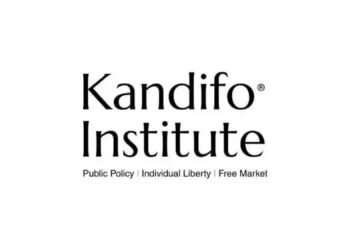Dr. Theo Acheampong, an Economist and Political Risk Analyst, has suggested that over the last ten years of commercial production of oil in Ghana, revenues accumulated have had negligible impact on the three key sectors of the economy, particularly, agriculture, manufacturing and services sector.
This followed a thorough analysis conducted by the Public Interest and Accountability Committee (PIAC) that showed that out of a total of $31.2 billion generated from the country’s oil fields, total petroleum receipts accrued amounted to only $6.5 billion from 2011-2020, equivalent to 9.97% of GDP.
Quite interestingly, the analysis showed that contrary to pre-oil expectations of sustained economic growth and transformation, this does not reflect any substantial positive outcomes in terms of tangible projects which the $6.5 billion has been used for.
Asked whether Ghana has benefitted from these revenues in terms of the real impact on the economy, Dr Theo Acheampong said:
“…What you can again see is that, even with the coming on-stream of oil, in late 2010 but especially 2011 onwards, it is very clear that there has been very little or negligible impact of those oil revenues on the economy of Ghana at the micro level.”
Considering the GDP at the start of the oil commercialisation, it is only two years- 2011 and 2018 that showed evidence of a positive impact. However, for all the other years, the impact has been small or negligible despite the revenues, Dr. Acheampong said.
Nevertheless, there is evidence of some impact of the oil revenues on the country’s trade balance. This is because of the fact that “oil exports is actually constituting about 28% of our total export base as a country now. But it is not filtering through to the three key sectors of the economy,” he said.
“It is not filtering through agriculture, neither is it filtering through manufacturing and we see some small evidence of that filtering into services sector, and even that, it does not last. It comes back to the use of the revenues and the extent to which we have utilized that to catalyze other aspects of the economy.”
Dr Theo Acheampong

Oil Revenues, a License to Borrow
Sharing similar sentiments, Dr. Lord Mensah, an economist and a senior lecturer at the University of Ghana Business School, said:
“I believe that if you relate the oil find to our borrowing trajectory, clearly, the oil just came to [give us more] reason to borrow. We discovered oil in 2007, quickly, we went to the Eurobond market to borrow. We borrowed from the Eurobond market which had its own responsibilities.”
That said, at the time the government was to service the bond obtained from the Eurobond market, the government had to“issue a new bond to offset the old bond.”
Consequently, this “chain of borrowing” has played out rather frequently since the country discovered oil, he said, adding that “the oil gave some kind of confidence, for which when we issue bonds, the investor will have that kind of trust in our environment to put [in] money.”
Considerably, this adds to other reasons why the country has accumulated debt to this level. “The oil has come to add on to the economy but it didn’t make any impact,” he said.
While one could be justified in criticizing the inefficient management of the oil revenues thus far, the total amount of revenue accrued, however little it is, stems from the structure of the fiscal regime practiced.
From the onset of oil discovery in Ghana, negotiations between the government and investors have been very favorable to the latter, as the government deemed it important to provide incentives to the investors due to the high risks of investments in the exploration of oil.

Mr Nasir Alfa Mohammed, the Vice Chairman of the PIAC, said:
“Well, that’s peanut, but there are also important considerations for us to look at because, at the time we started exploring for oil, our petroleum basins were largely risky and when you have such circumstances, you are looking for investment arrangements that will attract investors to your petroleum basins to partner with you.
“In doing so, it was likely that we negotiated away certain benefits that would ordinarily have come to us… We really needed the investments, and that explains why at the initial stages we didn’t do well with our negotiations…”
Mr Nasir Alfa Mohammed
Revenue Generated is a function of contracts and agreements signed
Additionally, it is the case that the revenue being generated from oil production is a function of the contracts and the agreements and the different tax elements within them, Dr Acheampong said. He added that, “… if we put that in the right context, you actually would see that, of the $31 billion of which we have gotten $6.5 billion, that’s roughly about 17% or 18% of the revenues, the other bit also includes importantly, the cost of the extraction of the resource itself.
“So, the investors… spent some money and subsequently, we need to take out that cost in addition to whatever profits that they would have made. And I have seen some studies that indicate that as much as between $18 and $19 billion is how much has been invested into the upstream sector in terms of cost.”
Dr Theo Acheampong
Notably, putting this into the right context, one could see that the revenues accrued really reflect the contracts that the country has signed so far, he said. The obvious truth is that “the contracts that we signed in the past were very generous to the investors”.
More importantly, the $31.2 billion includes the profit to investors as well as the cost of extracting the resource, he explained.
However, there is the argument made about whether, “…that $18 or 19 billion truly reflects the cost that has been spent on the ground and whether or not there has not been some transfer pricing or some sort of tax abuse or cost inflation taking place in the industry.”

Meanwhile, some analysts have called for a change in the current fiscal regime of the petroleum sector to production sharing agreement (PSA) regime, as that holds several advantages compared to the current regime being practised, and which is widely used among more than 80 oil-producing countries in the world. Thus, Ghana is in the minority, among countries practicing the hybrid system.
Contrary to the low revenues accrued to Ghana under the hybrid system, the Ghana Institute of Governance and Security (GIGS) have long demonstrated that if Ghana had adopted the PSA, as sovereign owners, Ghana would have received $9.61 billion (representing 60.10% of total production revenue as “Government Take”). This is in excess of over $2 billion of what has been accumulated under the current regime.
By considering a regime change, coupled with managing the revenues more efficiently, the narrative could turn positive to the country’s benefit. Since the Royalty/Tax regime and the hybrid system have been practiced for ten years now, and their contributions have been clearly seen, wouldn’t it be prudent to try the PSA regime to prove its much touted potency?
READ ALSO: Supreme Court Ruling not Settling Matters- Inusah Fuseini























